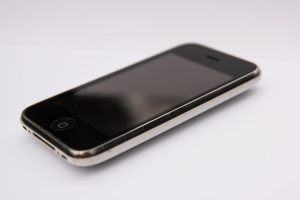Employers who encourage their workers to stay connected at all times should be mindful that if those times include while the employee is operating a vehicle, the employer could be deemed liable for the resulting injuries. This could come about in one of two ways:
- Vicarious liability. Plaintiffs need not show the company was negligent, only that the driver who was negligent was acting in the course and scope of an employment at the time of the crash. An employee who is distracted by a work-related call could be found to have been acting in the course and scope of employment, even if he or she wasn’t technically on-the-clock.
- Direct negligence. Companies that compel or expect workers to be available at all times – even knowing some of those times will be while the worker is driving – could be found directly negligent for a distracted-driving crash involving a worker. This is why an increasing number of companies are attempting to shield themselves from liability with anti- distracted driving policies.

Despite knowing that distraction is one of the top causes of roadway accidents, many employers still fail to take this important initiative.
A recent poll conducted on behalf of Travelers insurance revealed that work-related pressures play a significant role in distracted driving.
In fact, 43 percent of respondents who drive said they do so while maintaining some form of communication with work. Thirty-eight percent said they used a cell phone, 17 percent said they used text messaging, 10 percent used email. Of those who communicated with work while driving, more than half were between the ages of 18 and 44. More than 25 percent said it was common for their employer to call or even text them, despite knowing the employee was driving at the time of that communication.
The survey involved a sample size of more than 2,000, and the purpose was to uncover the commonality of using one’s personal vehicle for work. The insurer discovered three-fourths of respondents drive their vehicles for work-related purposes, not just commuting to-and-from their place of employment. (This has significant implications for both workers’ compensation claims and third-party liability actions if the worker is involved in a crash during these times – regardless of whether it involved work-related distractions.)
In a case where an employer texts a worker who is driving and the worker crashes while reading or responding to text, there is a good chance anyone injured in that collision could name the employer as a defendant. Most companies have concluded email is the best communication to minimize their risk of liability, though many workers do have their email connected to their smartphone. If there is proof the employer had an expectation the worker would check these messages as soon as they were sent – regardless of whether the worker was driving – that could be grounds to assert negligence as well.
Our Cape Coral car accident lawyers know some recent cases have attempted to expand employer liability when it involves employees who are driving while distracted. For instance, a court in New Jersey held in 2013 that someone who texted someone else knowing the second party was driving could be held liable. Still, most courts have tended to stick to the notion that the responsibility is on the driver to avoid distractions. But that doesn’t mean this stance won’t shift, particularly if companies are lax about drawing up or enforcing anti-distraction policies or if there is evidence workers were expected to communicate while in transit.
Call Associates and Bruce L. Scheiner, Attorneys for the Injured, at 1-800-646-1210.
Additional Resources:
The boss made me do it: 43 percent admit using smartphone because of work while driving, survey says, Dec. 1, 2017, By Fredrick Kunkle, The Washington Post
More Blog Entries:
Holidays Pose Heightened Risk of Drunk Driving Accidents in Florida, Dec. 12, 2017, Cape Coral Car Accident Lawyer Blog
 Florida Injury Lawyer Blog
Florida Injury Lawyer Blog





